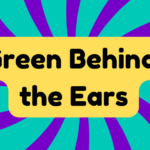When you hear the phrase "fall on deaf ears," it means significant concerns or passionate arguments often get ignored or overlooked. This phrase has roots dating back to before the 16th century, illustrating a long-standing tendency for society to disregard valuable insights. Today, many voices still go unheard in discussions, which can stifle innovation and hinder progress. It highlights the communication barriers we face, especially in debates around critical issues. Recognizing these patterns is essential for fostering meaningful conversations and change. Stick around to explore how you can advocate for better listening and engagement in your discussions.
Synonyms
When someone's important points or concerns fall on deaf ears, it can be frustrating, especially since there are several synonyms that capture this sense of disregard. Terms like "ignored," "neglected," and "overlooked" highlight how easily overlooked arguments can be dismissed. The emotional weight of these terms resonates deeply. Consider these feelings:
- Disappointment when contributions are unrecognized
- Anger when dismissed concerns go unheard
- Sadness when meaningful dialogue is stifled
- Frustration over lost opportunities for innovation
- Apathy from repeated disregard of voices
Understanding these synonyms helps you articulate the struggle against ignored perspectives. In your quest for impactful change, recognizing this language empowers you to confront the barriers that lead to overlooked ideas or dismissed concerns in discussions.
Example of Sentences
Recognizing the emotional weight behind synonyms for "falling on deaf ears" can sharpen your understanding of how frustration manifests in communication. It's troubling to witness passionate pleas met with disregard. Here are some examples that capture this sentiment:
- Project budget concerns were ignored despite protestations.
- Awareness of an ongoing issue disregarded during discussions.
- Impassioned arguments often overlooked in debates.
- Safety warnings about speeding largely went unacknowledged.
- Advocacies for change frequently met with indifference.
These sentences underscore the reality of ignored arguments and overlooked warnings. It's disheartening to see how often voices, even those filled with compelling logic and emotion, get lost in the void. We need to recognize and react, ensuring we listen to critical concerns that deserve our attention.
Origin
How did the phrase "fall on deaf ears" come to symbolize the dismissal of important voices? Tracing back to before the 16th century, this idiom gained traction through historical context, particularly in political and economic discussions. Jonathan Swift's 18th-century poem highlighted a similar sentiment, emphasizing how influential arguments often went ignored. By the 19th century, it became commonplace, reflecting society's tendency to overlook critical ideas. The literary significance of this phrase is evident in works like John Rae's critiques of Adam Smith, showcasing how even revered figures aren't immune to neglect. Ultimately, this phrase illustrates a broader apathy toward valuable perspectives, reminding us that innovative ideas can easily fall into societal voids if we're not careful.
Collocations
Building on the idea that important voices often go unheard, the phrase "fall on deaf ears" has several common collocations that enhance its meaning. You might hear about ignored arguments or overlooked warnings that exemplify this frustrating phenomenon. These phrases reveal how often valuable insights fade into silence, leaving significant issues unaddressed.
- Disregarded pleas for change
- Unheeded cries for justice
- Neglected safety protocols
- Dismissed environmental concerns
- Ignored community needs
This language underscores a stark reality: when warnings and arguments are brushed aside, society risks stagnation and danger. It's time to break the cycle and guarantee that voices aren't lost, fostering innovation and progress instead of silence and neglect.
How to Use in Everyday Language
In everyday conversation, you can effectively use the phrase "fall on deaf ears" to express frustration when important points are ignored. This expression highlights communication barriers and can help you articulate feelings about social indifference. For instance, when you notice your ideas in a group discussion seem unacknowledged, saying they "fall on deaf ears" emphasizes how your voice is overlooked. You might point out that safety issues raised during meetings often meet this same fate. Using this phrase reminds others of the consequences of ignoring essential issues, promoting awareness and engagement. By incorporating "fall on deaf ears" in discussions, you challenge the tendency to dismiss critical viewpoints, creating a more inclusive dialogue and encouraging active listening.
Why Is It Still Relevant Today?
The phrase "fall on deaf ears" remains highly relevant today, especially in a world where communication often feels fragmented. You probably notice how frequently important voices go unheard, especially when discussing pressing issues like social awareness. Communication barriers can make it easy for valid concerns to be ignored, leading to frustration and disillusionment. Whether in politics or everyday conversations, the effort to be acknowledged is real. It's critical to challenge these norms, ensuring that diverse perspectives don't fall silent. As we aim for innovation, recognizing these barriers can empower us to bridge gaps and elevate overlooked voices. Being aware of this disconnect could initiate meaningful dialogue and inspire real change, making the fight against being ignored a collective endeavor.







